LEWISTON — It’s been hotter and more humid than usual in Maine so far this summer, after a cool start. It may be stating the obvious, but the combination is having a mostly positive effect on the region’s agriculture sector with larger fruit and produce and bigger yields.
“From a weather perspective, this year is almost as good as we could have it,” Jason Lilley said. “We’ve been very lucky with good sunny weeks.” Lilley is an assistant extension professor of sustainable agriculture and maple industry educator with the University of Maine Cooperative Extension.
The heat and humidity are having some negative impacts as well — stressing animals, trees, plants and humans working in the fields. Kathy Shaw has been farming and raising livestock at her Valley View Farm in Auburn since the 1990s and says she has a sixth sense when it comes to nature.
“Whenever you put plants of any sort under heat stress like this they send out, and this sounds kind of silly, but they send out like a help signal.” Shaw said it’s a distress signal, which can be a siren song for pests. Among the signs Shaw looks for include leaves folded down, plants and trees droopy and looking dried out, and fruit dropping prematurely.
Still, Shaw said she’s confident it’s going to be another good year.
“My chickens are laying like crazy, all the animals are growing, even if they are stressed out,” she said Tuesday. “I have developed a pretty solid niche in cut herbs, so this year they love the heat, and they’re doing great this year.”
Keena Tracy owns Little Ridge Farm in Lisbon, growing certified organic vegetables and pasture-raised meats. On a scale of 1 to 10, with 10 being the best, Tracy said last year was about a 6, although some plants did quite well.
“Some things that like a lot of rain, like cabbages, were ginormous,” she explained Tuesday. “There were leafy greens like kale and chard, like those things were huge and beautiful. But other things that don’t want that rain or were in wet spots just did horrible.”

Keena Tracy picks beets Wednesday afternoon at her farm, Little Ridge Farm in Lisbon. Tracy says it is shaping up to be a very good season. Russ Dillingham/Sun Journal
She said the excess rain aside, the lack of sun was worse. This year’s sun and heat have made a lot of difference. “I just feel like with the sun and the photosynthesizing of all the plants, things are just much happier … it seems like the yields are gonna be back up to normal for most things.”
Tracy is giving this year an 8 or 9 so far.
Peter Ricker manages the orchards and farm at Wallingford’s Fruit House in Auburn, part of the Ricker family’s collective of 400 acres of apples and berries in three counties.
He said last year’s crop was small after a late freeze, but this year is looking pretty good. “We’ve already started picking apples and they are large,” he said, adding the veggies are also large and that the sun is good.
PESTS AND OTHER PROBLEMS
There are some pests out there and the early invasion of the fruit flies is well documented, an invasion that Lilley said caught most people by surprise and forced some strawberry farms to end their season early.
The spotted wing drosophila and other insects that don’t overwinter in Maine, Lilley explained, arrive from the southern coast via storm systems, which started earlier than normal this summer.
“That usually doesn’t show up until the end of July,” he said July 2, “and as of the middle of last week we had pretty significant reportings … throughout the southern and central part of the state. So, it’s not just one area, it’s the whole region,” adding that they all showed up pretty much on one day.

Katharine Garcia picks highbush blueberries Thursday at Wallingford’s Fruit House in Auburn. Farm owner Peter Ricker says blueberries are right on schedule this summer. Daryn Slover/Sun Journal
The Ricker family has been dealing with fruit flies for some time now, noting the raspberries are particularly susceptible to the aggressive pests, which also like blueberries — crops Ricker said they’ve been trying to expand.
“Pesticides are always a last choice,” Ricker emphasized. “We’ve been cutting back weeds to keep airflow,” but they have not had to introduce predatory wasps in the battle.
There’s also a type of binding weed that is very aggressive and is a relatively new threat for Maine orchards. Ricker said he’s having to pay people to manually cut the vine away from trees and shrubs and he worries it may soon be a threat for Maine’s timber industry.
He described it as similar to morning glory or woodbine only worse, cutting off sunlight and suffocating whatever it grows on.
Lilley adds there are the usual pests to watch for like striped cucumber beetles and Japanese beetles, and he remains concerned about leftover soil-borne diseases from last year’s rains that could still take hold of some of the vegetable crops.
BEAT THE HEAT AND STAY VIGILANT
Farmers are busy, to say the least. Between weeding, harvesting and fall planting it’s all hands on deck. “That part is hard,” Tracy said, “because it’s 100% of that, 100% of the time,” from now through August.
At Little Ridge Farm, Tracy said it’s all she and her four part-time helpers can do to keep up. While the peppers, melons and tomatoes aren’t quite there yet, it’s getting close.
“We’re not quite at the peak yet,” she said. “It’ll still be another two or three weeks until we’re at that peak.”

Keena Tracy picks cucumbers Wednesday afternoon at her Little Ridge Farm in Lisbon. Russ Dillingham/Sun Journal
The other issue for farmers and ranchers remains labor, especially the kind of hard labor it takes to keep the crops and animals safe, healthy and ready for market to feed the rest of the region.
“The big thing for a lot of other farmers is adequate help,” Shaw said when asked what she’s hearing. “You can only push people so far in this weather. You have to be very conscious of that, so you have to realize that when it gets to be 90 degrees, not a lot of people are gonna wanna be outside working, outside moving.”
The blueberries are starting at Valley View Farm, earlier than Shaw can ever remember, and the basil is flowering earlier than normal as well. Rhubarb has had an awesome season.
As she puts fans on her flock and waters the livestock and sets her sheep out to graze on the proliferation of weeds, Shaw has one plea to all the nonfarmers.
“We need to make sure that our population, our citizens, our loyal customers, visit our farmers’ markets and our farm stands as frequently as possible. Because that is the only way that all of us — all of us not just me — but every single producer and farmer and consumer is going to get the benefit of our amazing growing season.”
Open Farm Day is Sunday, July 28. It’s an opportunity to visit a farm and discover more ways to enjoy farm products year-round. It allows visitors to explore host farms throughout the state and start a dialogue with a farmer, rain or shine.
To find a participating farm, visit realmaine.com/agritourism/.
For help with gardens and pests visit University of Maine Cooperative Extension at extension.umaine.edu/gardening.
Send questions/comments to the editors.



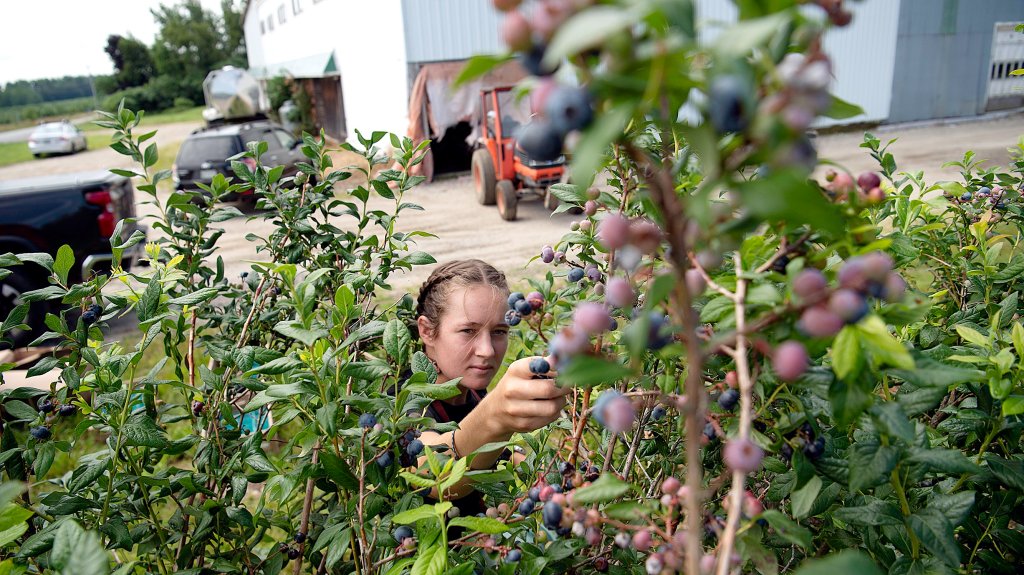
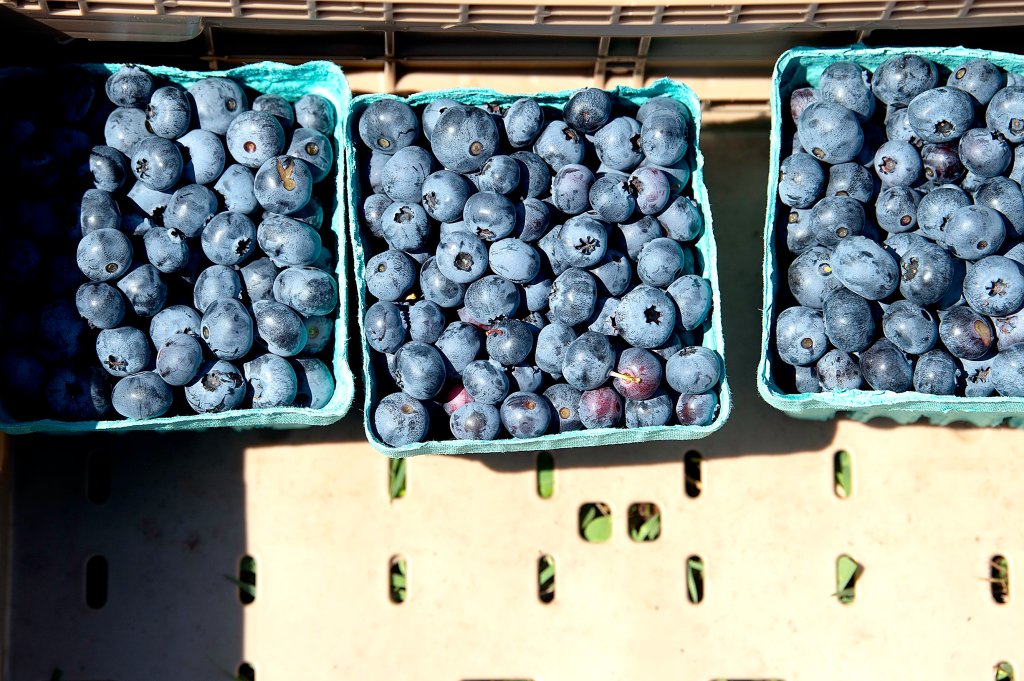
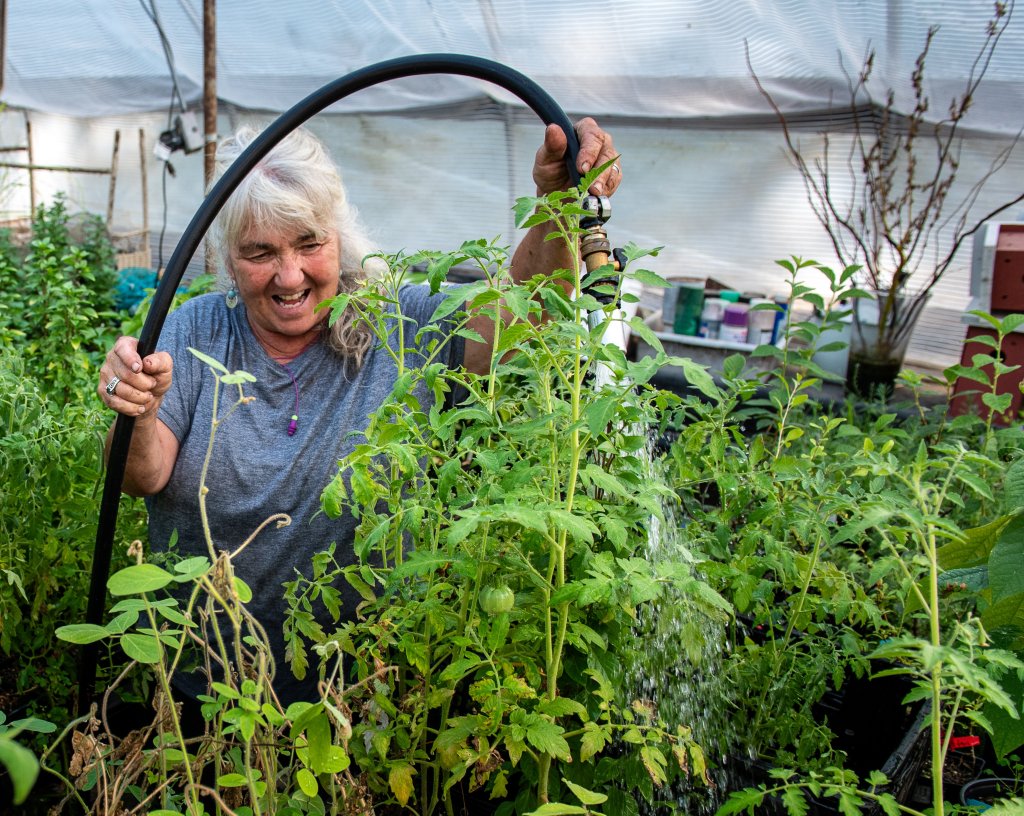
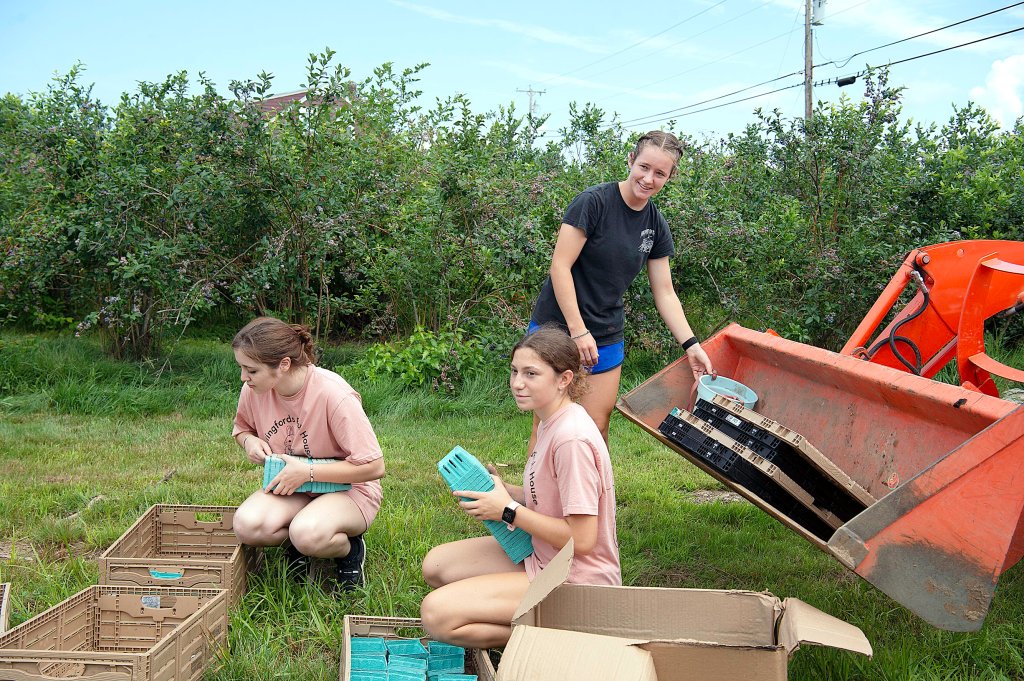
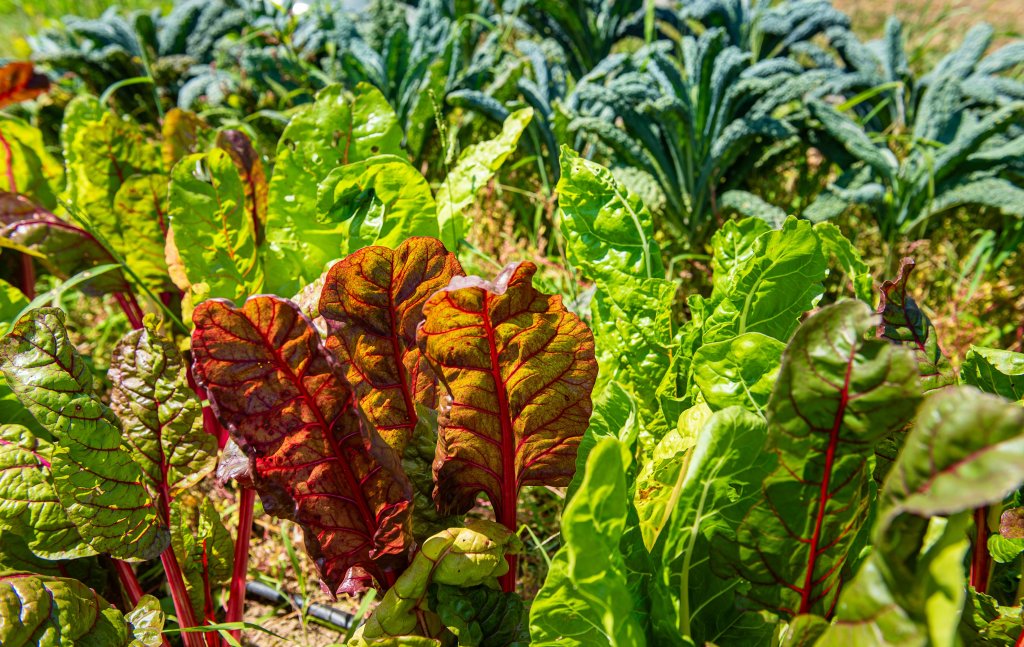
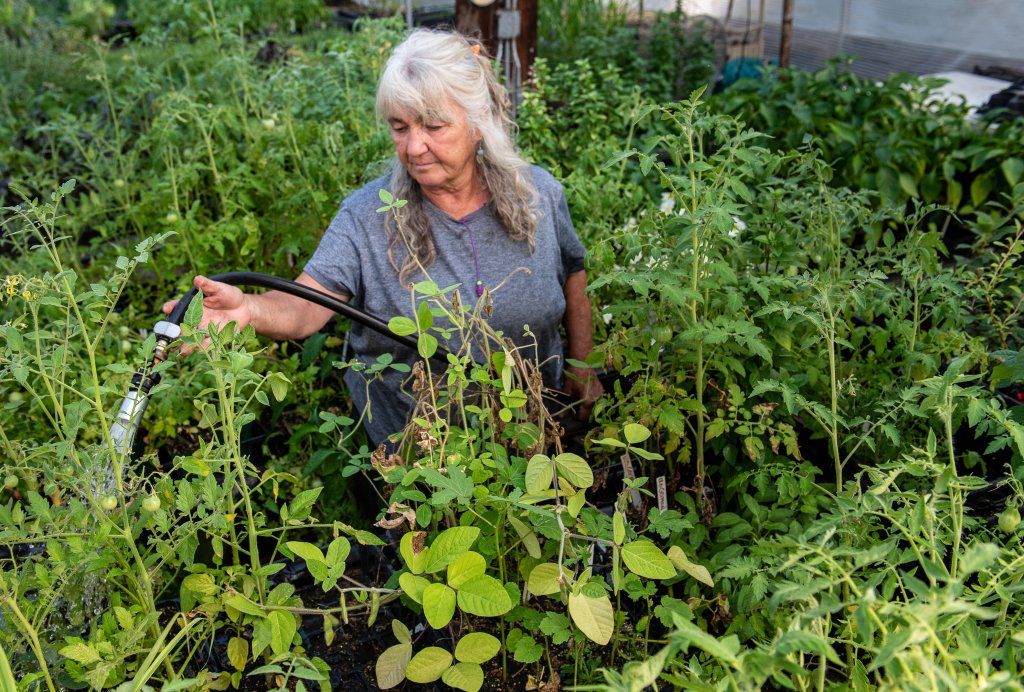
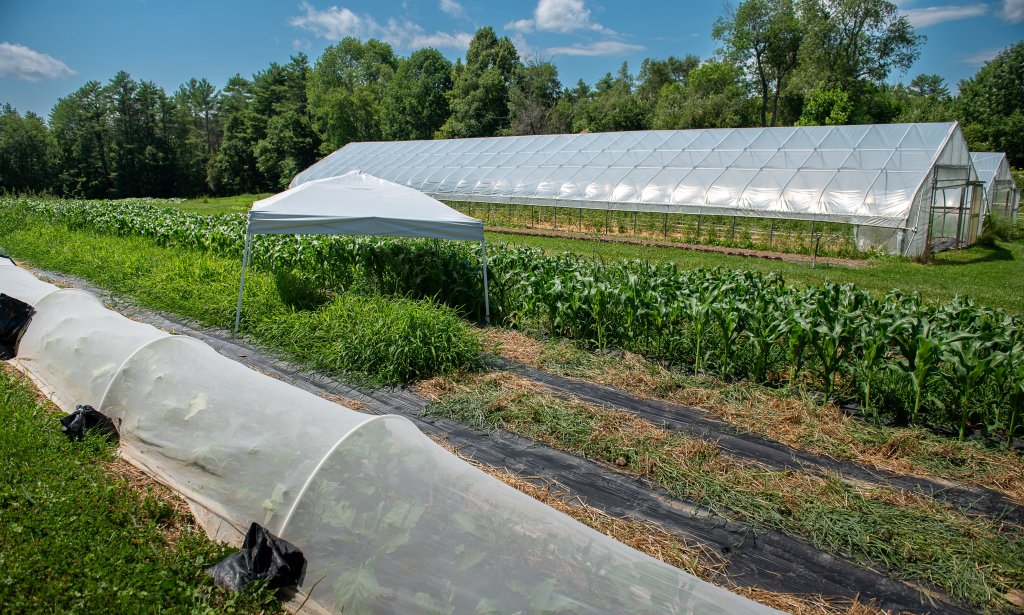
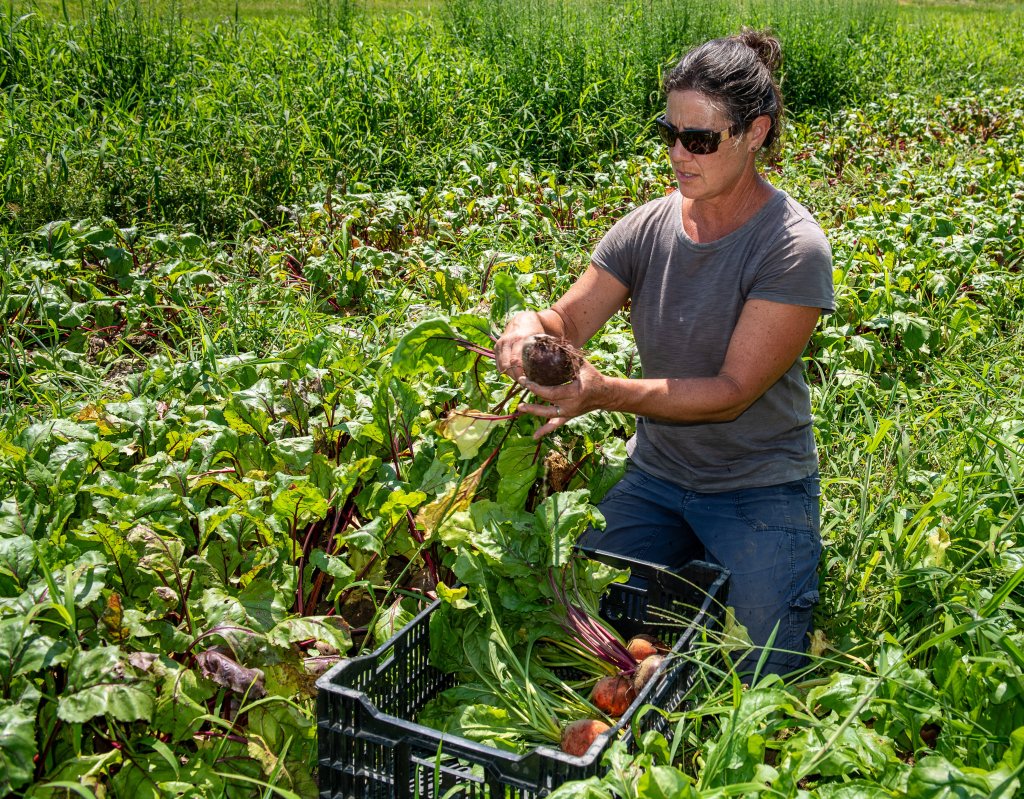


We invite you to add your comments. We encourage a thoughtful exchange of ideas and information on this website. By joining the conversation, you are agreeing to our commenting policy and terms of use. More information is found on our FAQs. You can modify your screen name here.
Comments are managed by our staff during regular business hours Monday through Friday as well as limited hours on Saturday and Sunday. Comments held for moderation outside of those hours may take longer to approve.
Join the Conversation
Please sign into your Sun Journal account to participate in conversations below. If you do not have an account, you can register or subscribe. Questions? Please see our FAQs.